.jpg)
Literacy at St. Cecilia’s
While literacy is key to ensuring success across the curriculum, we also recognise the importance of literacy to prepare students for life beyond the school gates. We aim for our children to leave school with enhanced understanding and awareness but also a love of reading.
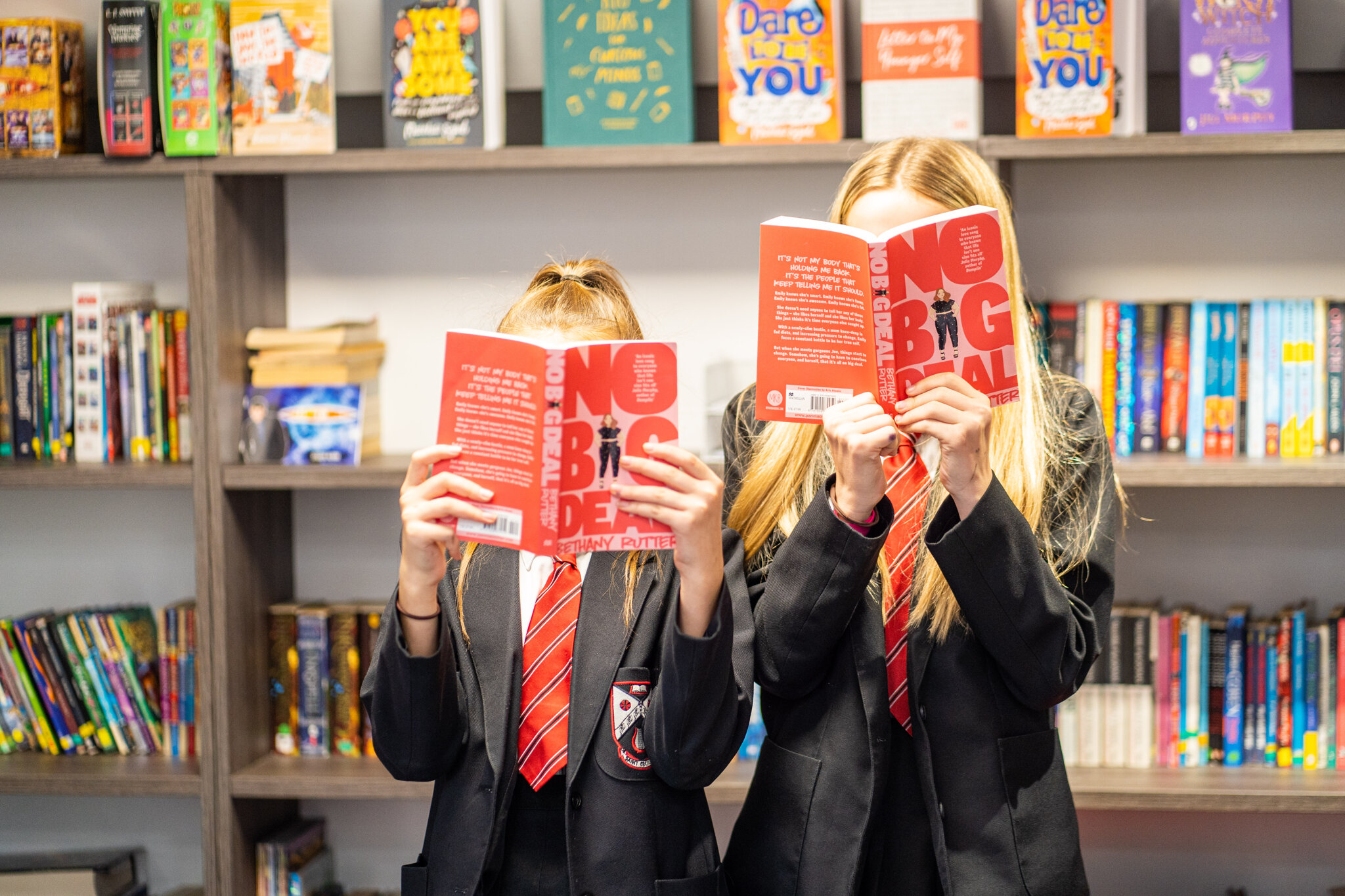
Literacy Approach for Struggling Readers
NGRT
Each pupil is assessed using NGRT (New Group Reading Test) which provides the reading ability of each pupil and identifies any reading gaps the students have. This information is shared with staff to ensure they know how to support their students.
Lexonic Leap
The data is carefully analysed and those who are not reading accurately are selected for the Lexonic Leap programme. This programme resolves phonics gaps for students. It is an intensive, personalised intervention delivered to small groups three times per week by two trained Teaching Assistants.
Lexonik Advance
Students who are not reading automatically are selected for our Lexonik Advance programme. This is delivered until automaticity is reached improving reading accuracy and fluency. It is delivered by a trained member of staff to small groups of 4 in six one-hour sessions
Additional literacy support is delivered to a small group of year 7 and 8 students in a dedicated literacy intervention lesson.
Impact
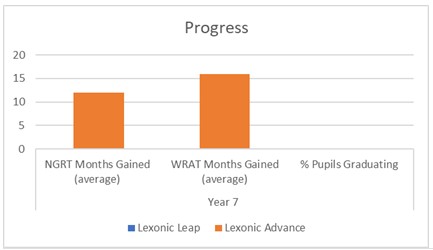
IDL
IDL computer-based literacy intervention (for all year groups) supporting learners with dyslexia and other learning difficulties to increase their reading and spelling ages.
Coram Beanstalk
Coram Beanstalk Reading mentor programme – trained mentors from Years 9,10 and 11 are working with students from Year 7 to improve their reading skills, attitude towards reading and reading confidence.

Literacy Ambassadors
In addition to promoting the joy of reading, our Y11 literacy ambassadors enjoy paired and small group reading alongside Teaching Assistants with some of our less confident school readers.

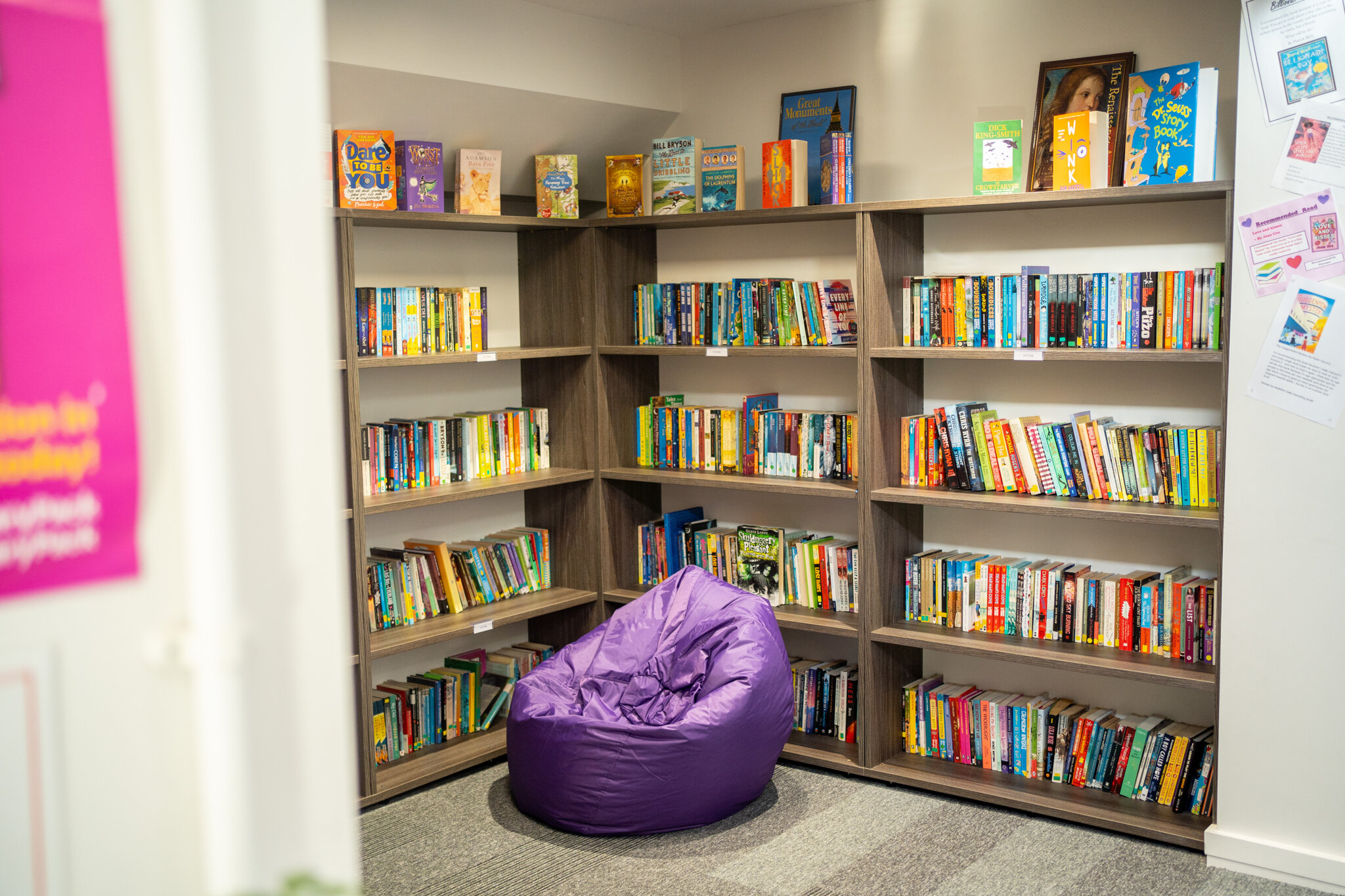
A Reading Culture and a Love of Reading
Transition Novel – The Final Year by Matt Goodfellow
Our encouragement of reading starts with transition. Before starting with us, Year 6 are introduced to an innovative novel told in free verse, ‘The Final Year’ by Matt Goodfellow. This moving tale explores some of the challenges faced by students transitioning to high school. It also ties in nicely with the themes of ‘childhood and identity’ that are explored during our English lessons in Year 7. Each student is provided with the novel, questions and tasks to complete during the summer. This is then followed up in lessons during the first few days of their first term with us.

Synopsis: Ten-year-old Nate lives with his mum and two younger brothers, Jax aged eight and Dylan, who’s four and thinks he’s Spiderman. The brothers are a tight little unit and, as the eldest, Nate takes care of the younger two when Mum is out with Auntie San at bingo, enjoying a few ciders.
When his best friend PS is put in a different Year 6 class, Nate is gutted, especially when PS starts to hang out with Nate’s nemesis, school bully Turner. New teacher Mr Joshua notices that Nate loves reading and writing, so encourages him to use words to help process his emotions, giving him a special notebook so he can write down his thoughts and manage his anger. However, Nate’s world is turned upside-down when Dylan is rushed into hospital. How will he cope if his little brother doesn’t pull through?
This incredibly powerful novel, written entirely in free verse, really packs a punch. Nate’s innermost thoughts burst from the pages, enabling readers to really connect with his intense feelings of pain, anger and love. Thoughtful black-and-white illustrations punctuate the text of this spectacular debut novel, which is a heart-wrenching and ultimately uplifting read.
Year Group Form Time Guided Reading
In addition to the reading book that each pupil carries as part of their core equipment, each year group is given an age-appropriate anthology of short stories, poems and other narrative non-fiction texts which is read for pleasure with their form tutor during form time.
This provides pupils with constant exposure to quality texts and allows all students to experience the joy of reading and have good reading and oracy skills modelled through teaching. It also gives students exposure to a wide range of literary genres and styles, written by writers from a range of eras, backgrounds and cultures and as such, supporting our goal to provide more diversity in our students’ literature. Children are given plenty of opportunity to discuss the stories and explore them in relation to their own experiences.


SPARX Reader
Sparx reader is an engaging and supportive online reading platform used both in school and at home.
We set SparxReader homework in English for Years 7-10. We believe this is extremely beneficial for our students as it ensures that they are reading actively and independently each week. It provides our students with access to a wide range of genres which are tailored to their reading age and ability. Sparx is designed to match to the students’ reading age by making them complete a reading test before their books are assigned to them. This test is vital to ensure our students have access to texts that will be beneficial in supporting their development in reading.
Literacy Lessons
Fortnightly Literacy lessons at KS3 which include 30 minutes reading a whole class reader chosen to complement the themes explored during the English curriculum. We hope that this helps develop students’ ability to read with accuracy, fluency and proficiency whilst also creating a love and appreciation for reading and the literary heritage. Literacy lessons also include literacy activities to help promote and improve accuracy.
Examples of some of the whole class readers include:
Year 7 Novel – A Monster Calls by Patrick Ness

Synopsis: Conor has the same dream every night, ever since his mother first fell ill, ever since she started the treatments that don't quite seem to be working. But tonight is different. Tonight, when he wakes, there's a visitor at his window. It’s ancient, elemental, a force of nature. And it wants the most dangerous thing of all from Conor. It wants the truth. Patrick Ness takes the final idea of the late, award-winning writer Siobhan Dowd and weaves an extraordinary and heart-breaking tale of mischief, healing and above all, the courage it takes to survive.
Year 8 Novel – In the Sea there are Crocodiles by Fabio Geda

Synopsis: I read somewhere that the decision to emigrate comes from a need to breathe. The hope of a better life is stronger than any other feeling. My mother decided it was better to know I was in danger far from her; but on the way to a different future, than to know I was in danger near her; but stuck in the same old fear.
At the age of ten, Enaiatollah Akbari was left alone to fend for himself. This is the heart-breaking, unforgettable story of his journey from Afghanistan to Italy in an attempt to find a safe place to live.
Year 9 Novel – Ghost Boy by Martin Pistorius

Synopsis: In January 1988, aged twelve, Martin Pistorius fell inexplicably sick. Within eighteen months he was mute and wheelchair-bound, being cared for at centres for severely disabled children. What no-one knew is that while Martin's body remained unresponsive, his mind slowly woke up, yet he could tell no-one, a prisoner inside his own body. During this time, he suffered abuse of a kind that is barely imaginable, yet still he kept the spirit of hope alive. It wasn't until he was twenty-three that a gentle therapist realised he was alert to everything and, along with his parents, assisted his road to recovery. Since then, against all odds, he has fallen in love, married, and now runs a thriving web design business. Martin's extraordinary story is a deeply moving account of the power of love.
Year 10 Novel – Simon vs. The Homo Sapiens Agenda

Synopsis: Simon Spier is sixteen and trying to work out who he is - and what he's looking for. But when one of his emails to the very distracting Blue falls into the wrong hands, things get all kinds of complicated. Because, for Simon, falling for Blue is a big deal ... It's a holy freaking huge awesome deal.
Everybody Reads in Class (ERIC)
We timetable half-termly lessons using a range of non-fiction texts to expose students to a wide range of reading material encouraging intellectual curiosity and developing cultural capital. The non-fiction texts are chosen carefully to reflect current issues to help our children to understand the world around them.
During these sessions, we use Reciprocal Reading which is a structured approach to teaching strategies that students can use to improve their reading comprehension. We also use the texts as a platform to promote discussion around our British Values, Protected Characteristics and Catholic Social Teaching.



The Day
The Day is a rich and engaging online educational resource that turns news into lessons across five differentiated reading levels. We utilise this as part of our ‘Friday Slide’ where KS3 and KS4 forms explore a differentiated article through guided reciprocal reading during which we explicitly draw out vocabulary and then ask good questions, debate the issues, listen to others and develop a powerful voice in shaping a better future.

Learning Resource Centre
We have a well-stocked Learning Resource Centre where students can borrow books or read quietly for pleasure in their own time. The LRC is open daily providing a calm space for our pupils to come and read, discuss books with teachers and peers, borrow books or revise quietly.

World Book Day

Examples of Other Literacy Enrichment Activities
Literacy enrichment activities include:
- Opportunities to see plays both in school with visiting theatre companies or trips to the theatre.
- Alongside our creative writing topic in year 9 we invite a local author to work with the students sharing his craft.

- All Year 10 and 11 pupils are treated to a fantastic performance of Macbeth, delivered by the brilliant Initiate Theatre. This was a wonderful opportunity for the pupils to get to know and understand Macbeth in greater detail. The pupils watched their GCSE text come to life on stage, and some were brave enough to take on the iconic roles of Macbeth and Lady Macbeth (including some real sword fighting!)

- Shakespearian experiences (such as theatre trips and a monologue competition)
- Writing (prose and poetry) competitions within school as well as opportunities for external local and national competitions.
- We have a book club that meets regularly after school to discuss books of their choice.
- We advertise and enter into literacy competitions. Most recently, many of our pupils entered ‘The Power of Poetry’ competition, which resulted in one of our pupils being nationally published for his poem featured below.


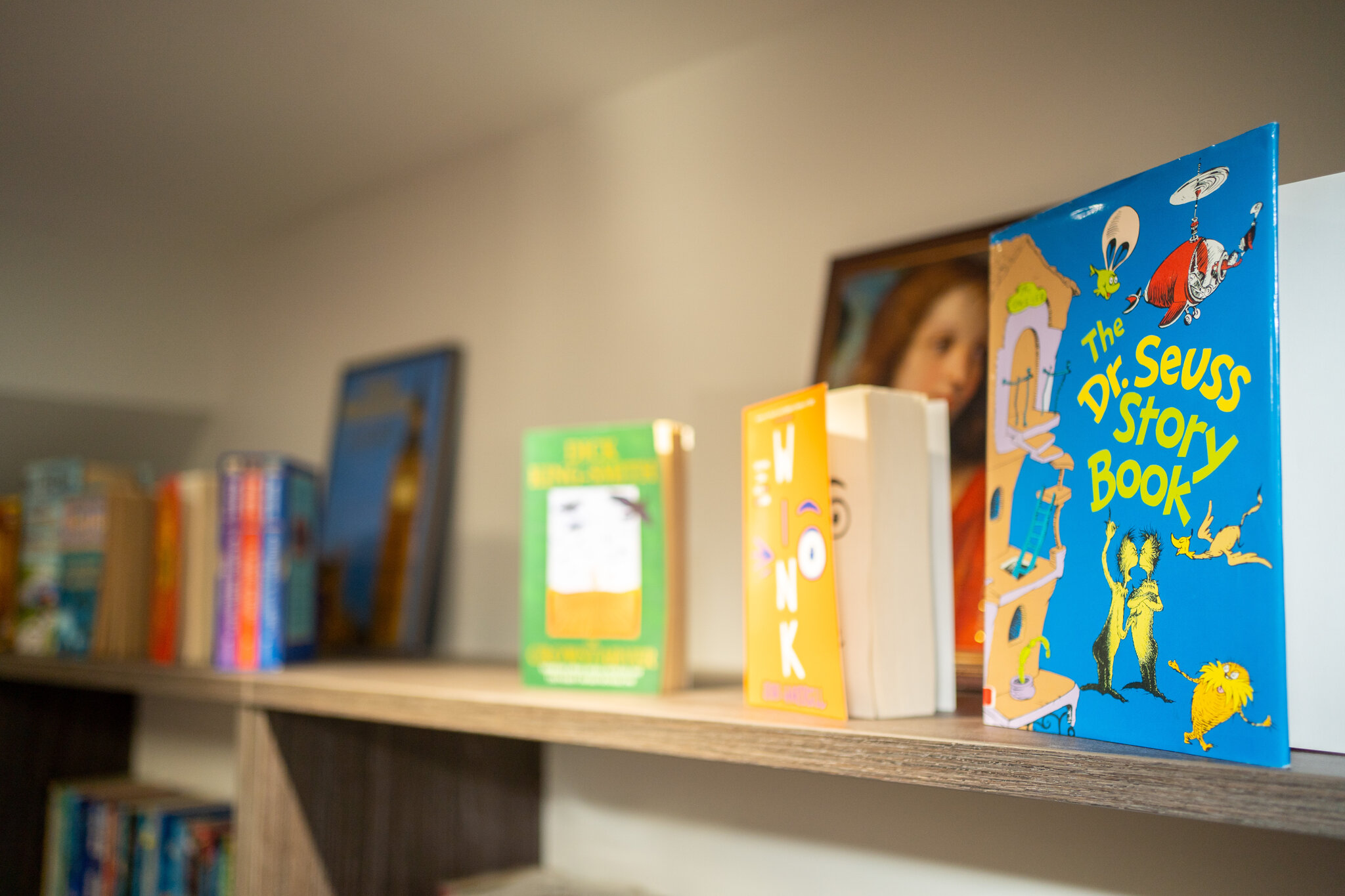
Whole School Approach to Literacy
We aim to deliver a curriculum where units of work incorporate opportunities identified for the development of literacy.
Each department has carefully selected a text for every unit of work. The texts selected are used to engage our students with what they are learning and deepen their understanding. Reciprocal reading strategies are used to improve reading comprehension and provide opportunities to deepen their understanding. They include a vocabulary focus, predicting, questioning, summarising, clarifying and a reflective personal response. They also provide opportunities for structured talk and discussion. During each lesson, there is a specific focus on how the text help enhance the ‘Personal Development’ of our students.



Explicit teaching of vocabulary
We recognise the importance of deepening our students’ understanding of words so that they not only can read them, but they can say them, understand what they mean and apply them accurately in context (both orally and written). We have developed a whole school approach to teaching vocabulary using Tom Sherrington’s principles. Each department has selected a key word per lesson and time is taken during that lesson to teach that word to develop and deepen our students’ confidence, understanding and fluency.

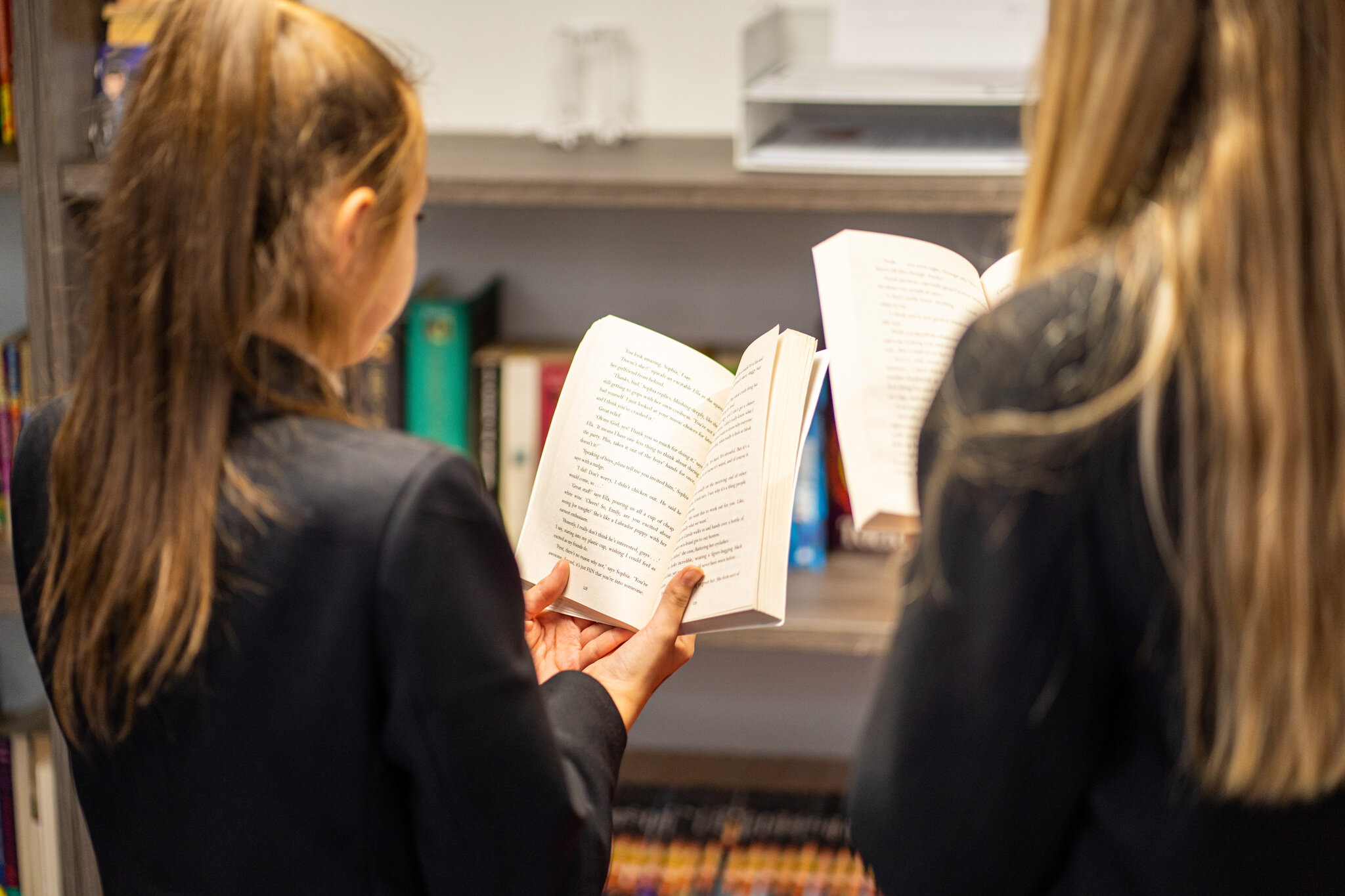
Oracy
We utilise every opportunity to improve our oracy in class, including through our explicit vocabulary instruction, presentations, delivery of assemblies or collective workshop, spoken responses and elaborating on initial responses.
Talk About Transition
Talk About Transition supports each student to raise their aspiration as they become more confident spoken communicators and build effective relationships with their peers. Students explore effective communication strategies and build their spoken confidence through carefully scaffolded workshop activities. By then learning how to communicate effectively and confidently, students feel more confident and assured in their approach to job interviews and careers paths.
Impact Talk About Transition
